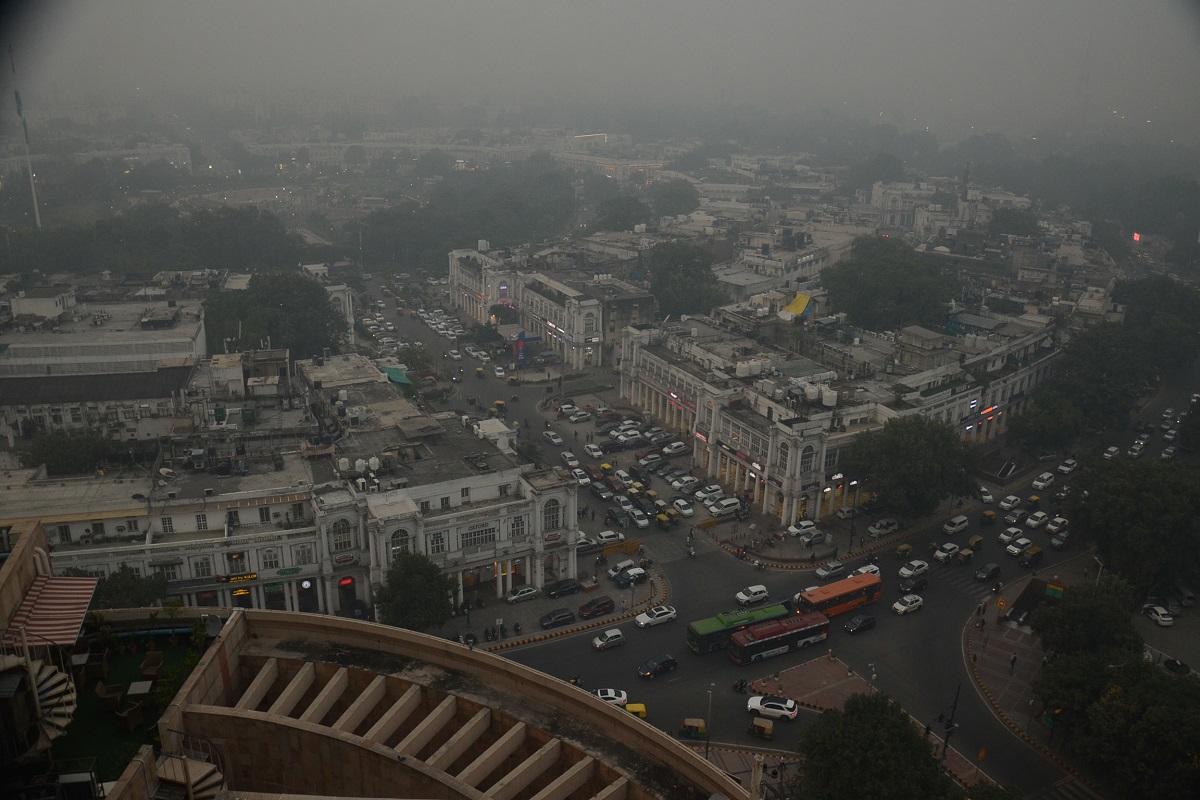Infant dies, five injured in roof collapse in Delhi
According to police officials, the incident took place at around 3 am while the family was asleep.
The metropolis cannot be free of pollution unless citizens change their lifestyle, and authorities do their job.

File Photo
Pollution is a part of Delhi’s life now. As winter sets in, people face smog in the morning. In summer, the air is loaded with dust. Delhi cannot avoid pollution any part of the year. It was, therefore, surprising people blamed firecrackers for the post-Diwali bad air.
The celebration lasted just a day. In fact, the stubble burning in Delhi’s neighbouring States was almost forgotten. The menace of farm-fires continues to grow without check. But it is something that is beyond Delhi’s control. A major factor contributing to Delhi’s pollution remains unacknowledged. It is the emissions made by vehicles in the city round the year.
Even if 20 per cent of Delhi’s over one crore vehicles run on roads every day, no part of the city will be free from their emissions. That almost all the vehicles in the capital are now new, and fitted with the latest equipment controlling the quality of their emissions, does not matter much.
Advertisement
If the vehicles are running all the time, they will definitely affect the quality of air. There is no regulation on the ownership of vehicles. One can buy and keep any number of vehicles at home. It is a common sight people driving their large SUVs in local markets, buying fruit and vegetables, any part of the city.
Areas where one can walk and do the day-to-day shopping often see “traffic jams.” Vehicles leave their emissions every inch of the areas they pass through. Since they do not stop running any time of the day, the emissions do not get a chance to get carried away by air to sufficient heights. In major markets and big parking lots, one can see parked SUVs with their engines and air conditioners on.
They make the air in their vicinity thick with pollutants. It is painful to pass by such vehicles, particularly for those who have little tolerance for vehicle emissions. It seems there is no law that vehicles parked in parking lots must switch off their engines and air conditioners.
The transport department has been urging car drivers to switch off their engines at red lights. People do not switch off their engines even in underground parking lots. Surprise checks alone can bring out the prevalence of such practices.
People see such things, but prefer to mind their own business. The option of a reliable public transport system can make much difference. The Metro is fairly well spread out. It is the bus system with compassionate crews that can make a big difference. Even those who might like to go to work by bus are scared of the manner the buses are driven and stop at bus stops.
The conductors have no role in helping passengers get in or get out. The drivers consider the passengers super-humans who are gifted to climb into the buses even while they are moving. At present, the buses are not only contributing to noise pollution by their heavy roar, but they also have much more emissions than several other vehicles put together.
As for pollution, transport of garbage and building material in open and semi-covered vehicles is another major factor. Delhi sees construction in every part of the city, lanes and bylanes, round the year. One cannot visit any locality without encountering concrete mixers working on roadsides.
Then, again, huge areas near roads are left uncovered. They can have green growth or be covered with tiles. The Yamuna floodplains have nothing but millions of tonnes of dust mixed with black ash from erstwhile Rajghat and IP thermal power plants.
This mixed dust flies up in the air in all seasons and settles on homes and terraces of localities in nearby areas. Those crossing the ITO, Nizamuddin, DND and other Yamuna bridges breathe in this air. People mopping up their floors in housing societies and other localities on the two sides of the Delhi river are only cleaning black dust from their homes every day.
The metropolis cannot be free of pollution unless citizens change their lifestyle, and authorities do their job.
(Contributed by Deepak Razdan and Bhaskar Roy)
Advertisement